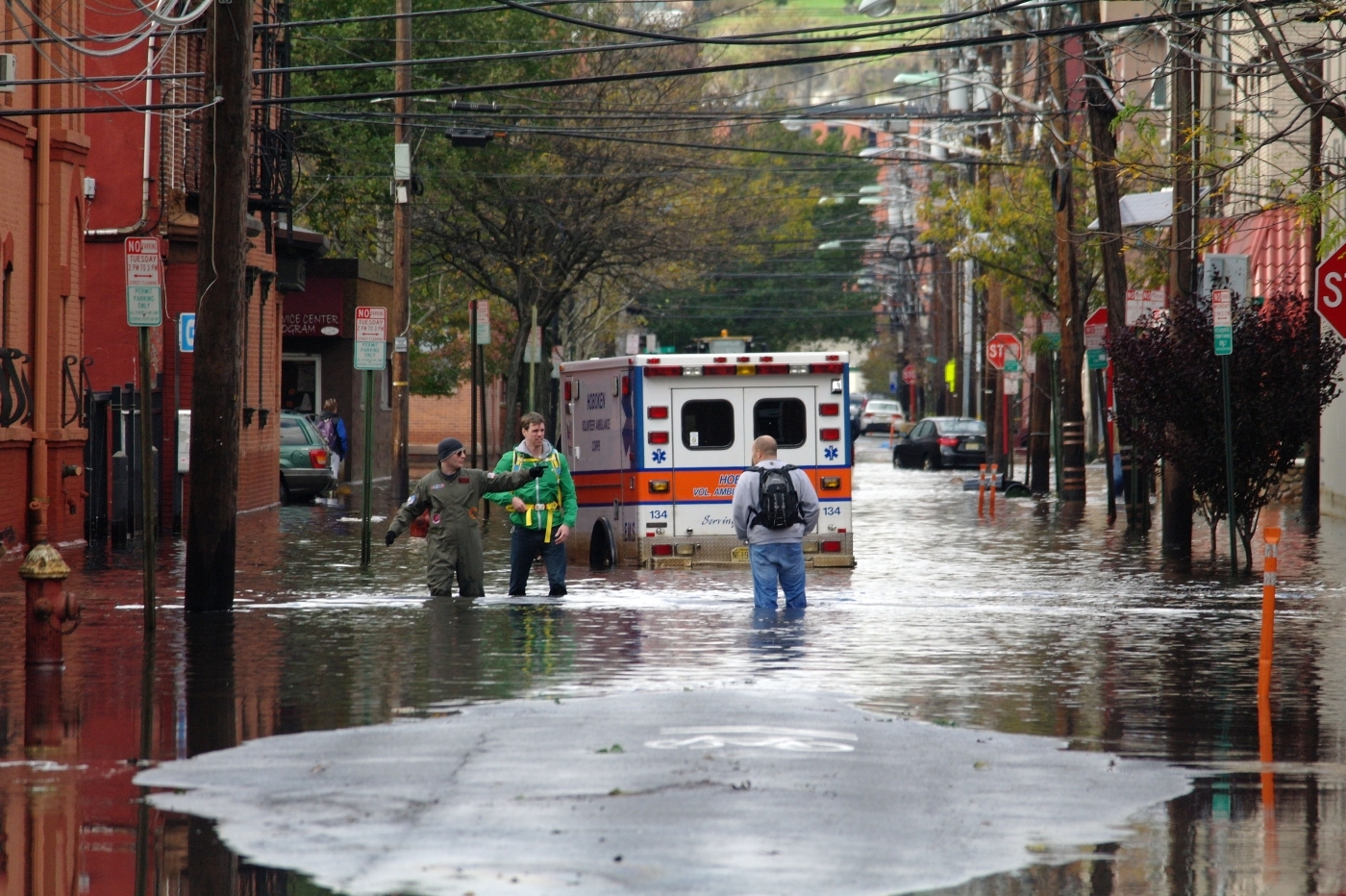Making the climate visible
How can we talk about something at once so massive and so omnipresent as climate change?
30 November 2018
10 years on from the groundbreaking Climate Change Act, we take this week to investigate what preventing climate chaos will look like across the UK economy. From digital tech to the health system, governance to finance, and how to talk about climate change, we explore where we are falling short — and how we can change the rules to build an economy fit for the future.
We cannot escape our experience of the climate. CO2 levels are one-and-a-half times higher than they were before the Industrial Revolution; for methane, it’s two-and-a-half. In the unlikely scenario that you’ve never been in an extreme weather event, you experience the changing climate in barely detectable ways every time you take a breath. At the same time, the omnipresence of climate change means that it’s impossible to examine as a single, discrete object. You can’t ‘see’ climate change in a routine way; you can’t point at anything and say, “That thing there is climate change.”
Our media represents climate change through spectacular moments of upheaval, but there will be no one Day After Tomorrow-style event, where we can all agree that ‘climate change is here’. Climate change isn’t just a series of natural disasters: many climate impacts have been and will continue to be gradual and largely invisible. Academic Rob Nixon calls this ‘slow violence’: “a violence that is neither spectacular nor instantaneous but instead incremental, whose calamitous repercussions are postponed for years or decades or centuries.”
And then there’s the fact that many of us have no idea what a ‘healthy’ climate feels like. Those of us under the age of 33 have never experienced a month in our entire lives when the global temperature was below the 20th century average. We are already living in a changed climate. The term ‘shifting baseline syndrome’ is used to suggest that each generation thinks that the state of the environment they encountered as children was ‘normal’, even when that ‘baseline’ itself was degraded. It means we underestimate the scale of destruction, and struggle to realise that we are all experiencing climate change already.
All this presents a psychological challenge for talking about our changing climate. It’s a vast yet in some ways curiously imperceptible issue. The omnipresent, non-linear, slow, yet urgent nature of the climate change threat means that we have to use different lenses to see it.
Amongst climate scientists and campaigners, in response to the frustratingly slow action on climate change, there has been a lively debate about how to capture public attention. Organisations like Climate Outreach have produced valuable evidence-based recommendations for how to talk about climate change. Useful rules of best practice tend to involve the following:
- Emphasise local, ‘everyday’, real-world impacts rather than using statistics or graphs.
- Begin with your audience’s values, rather than imposing your own.
- Connect messages about impacts with solutions and concrete actions for people to take.
These recommendations have quickly formed the ‘rules’ of climate communications, and avoid presenting climate change as abstract, distant or spectacular.

This focus on communication has also spawned a debate around whether talking about the potentially cataclysmic effects of runaway climate change is brutally honest, or paralysingly alarmist. This debate was recently reignited by David Attenborough’s comments that too much alarmism about the environment is a ‘turn-off’ for documentary viewers. Anti-alarmists like him argue that, without positive messaging, audiences will quickly become numb to talking about environmental breakdown. On the other side you have campaigners like George Monbiot, the new climate action group Extinction Rebellion, and writer David Wallace-Wells (who opened his viral article about runaway climate change by saying, “It is, I promise, worse than you think.”). They argue that describing the potential impacts of a 1.5 degree future is not ‘alarmist’ so much as ‘truthful’.
Since the publication of the UN’s latest climate warnings earlier this year, it seems like there’s been a shift in this argument: glossing over the potential consequences of runaway climate change is beginning to look more and more like disregarding scientific evidence. The main challenge of alarmism is that without connecting the increasingly dire warnings of scientists to real world change that individuals can engage in, we risk people feeling hopeless and disempowered. And these ‘real world’ actions should be more than the tired suggestions to turn your lights off when you leave the room: they need to be about divestment and political engagement.
But beyond building public concern around climate change, we need to define what kinds of climate action we are calling for. There are many political visions of how to fight climate chaos, and it’s not improbable that as more people begin to experience acute climate impacts for themselves, we will see a political shift towards more authoritarian and nationalist responses.
What do we want a post-carbon society to look like? What is our progressive vision of a world no longer reliant on fossil fuels? From decentralised energy systems to cleaner air to comprehensive public transport, progressives have to be able to articulate their visions of a world where tackling climate change also fights concentrations of ownership, racism, huge wealth disparities, and more. We can’t risk raising the alarm about climate change, only to have to fight new policies that solidify borders and strip back public services.
The sit-in two weeks ago in Democratic leader Nancy Pelosi’s office by the Sunrise Movement and new congresswoman Alexandria Ocasio-Cortez launched a draft text for a proposed Select Committee for a Green New Deal. The text emphasises that a comprehensive plan to fight climate change presents “a historic opportunity to virtually eliminate poverty in the United States.”
And this reveals something vital: a transition to a fossil fuel-free world isn’t just about preventing something bad; it’s also about creating something good. It presents an abundant vision of the future, where climate policy that involves progressive redistribution enables us to live more fulfilling lives.
That is what this blog series, marking 10 years since the Climate Change Act, has attempted to do: make the ramifications of mitigating climate change more visible, through showing how it plays out in areas like health, finance, and tech. Going forward, we are committed to working with communities and unions in high-carbon industries to build a genuinely fair transition away from fossil fuels.
We need talk about climate change by showing the human impacts of environmental breakdown. We cannot shy away from the scale and threat of the challenge. But we also have to bring with us an understanding of the future that we want to create. Environmental campaigners often say that ‘green’ issues shouldn’t be siloed — but we need to put this into practice by emphasising how a post-carbon future can align with other progressive goals.
Climate scientist Kate Marvel said that, “Climate change is not pass-fail. … There is a real continuum of futures, a continuum of possibilities.” It’s time to decide where on that continuum we want to lie.
03.12.18: This article was amended to say that CO2 levels are one-and-a-half times higher than before the Industrial Revolution, and methane levels two-and-a-half. The piece originally said they were two-and-a-half and three-and-a-half times higher, respectively.
Banner image: Spencer Thomas (CC BY 2.0)
Topics Climate change Environment






